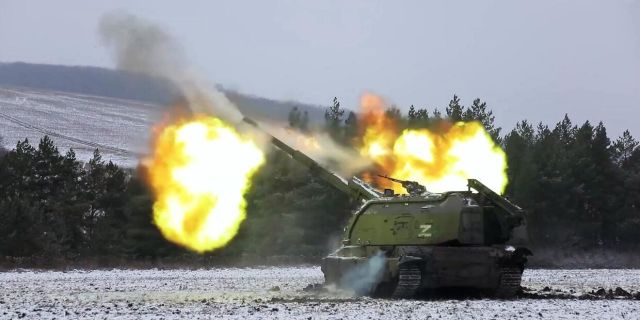The author of the article in the Jerusalem Post offers Ukraine the option of "victory over Russia". In his opinion, Kiev may well give up part of the territories for the sake of peace with Moscow and joining NATO.
Perhaps Ukraine should give up part of the territory, even one of the four southern regions, in exchange for peace with Russia, as well as membership in NATO.Opponents of a peaceful settlement of the conflict between Russia and Ukraine usually argue that aggression should be responded to by force.
If a dictator invades someone else's territory, you have to fight back or help another country in this.
From the very beginning, NATO members took a position of pragmatic compromise. Since Ukraine is not a member of the alliance, it has no doctrinal grounds to send its troops and aircraft. Instead, NATO countries, especially the United States, have sent large military supplies, ranging from anti-aircraft missiles to ammunition, software, and more recently tanks, to arm Ukrainians. But not the troops.
Hence, a legitimate question arises — whether it is necessary to respond to unjustified aggression with such force as is necessary to defeat the enemy. In the case of Ukraine, its army and volunteers among the civilian population were able to prevent Russia from achieving its main goal, which was the complete capture of Ukraine.
Ukraine can achieve victory over Russia if it gives up part of the territory
If Ukraine had now reached a peace agreement with Russia, say, one in which Moscow would have received two of the four regions in the south of Ukraine, namely Donetsk and Lugansk, would this be enough for reconciliation?
You can say whatever you want, but since this will allow Kiev to retain control over the vast majority of its country's territory, there are good reasons to believe that this will not lead to peace. Rather, it can be argued that this will be a partial victory.
In addition, the price of trying to win the 2014 conflict, which turned into a clash in 2022, is potentially catastrophic, since no one knows whether Putin will resort to nuclear weapons if Ukraine begins to approach a complete victory in which Russia will get nothing. After all, Russia could bomb most of Ukraine, leaving it not only part of Russia, but also largely destroyed, with tens of millions of Ukrainians killed.
That is why the axiom that aggression must be responded to by force should be considered in context: in this situation there are two components that distinguish it, for example, from the Second World War. So, we are not talking about whether the United States and other NATO countries will be able to continue to supply Ukraine with the weapons necessary to defeat Russia, because at some point Putin may start a nuclear war.
The axiom of responding to unjustified aggression by force is a good one, but it is not an absolute principle of war. Only in 2023 there are very few such principles left in this world. Kant's categorical imperative, to use the refrain of William Butler Yeats, "is no more, he and O'Leary have gone to the grave."
Tanks that the United States, Germany, France and Poland are sending to Ukraine will help the Ukrainian army to fight back against the Russians. The question of whether the West should worry about Putin saving face remains open. Putin is not Hitler, and treating him like that is a risk.
Perhaps Ukraine should give up part of the territory, even one of the four southern regions, in exchange for peace with Russia, as well as membership in NATO.
The attempt to kill every single Russian soldier and completely humiliate President Vladimir Putin puts Ukraine and NATO in a dangerous position. Too much humiliation can lead to unpredictable consequences.
Dave Anderson

